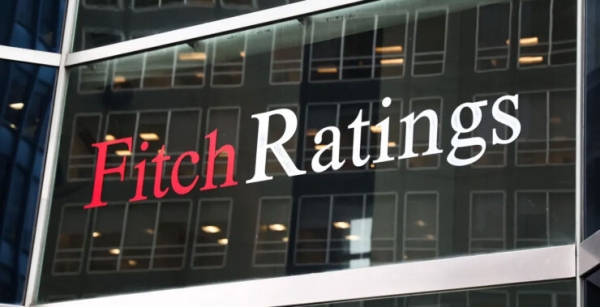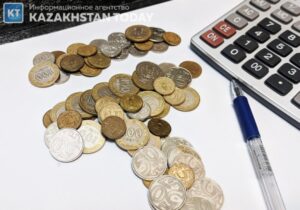Fitch Ratings has upgraded Turkmenistan’s Long-Term Foreign-Currency (LTFC) Issuer Default Rating (IDR) from ‘B+’ to ‘BB-‘. The outlook for this rating is stable. The key reasons behind this upgrade include a strengthened sovereign balance sheet and exceptionally large external reserves.

One of the main reasons for the upgrade is the significant improvement in Turkmenistan’s sovereign balance sheet. The government has exercised greater expenditure discipline compared to previous cycles of high energy prices. Fitch expects the fiscal position to remain balanced through 2026. Sovereign net foreign assets (SNFA) are projected to increase to 55.9% of GDP by the end of 2024, up from 54.7% in 2023 and 45.1% in 2022, which is the highest among its peer group.
Turkmenistan’s foreign-exchange (FX) reserves have continued to grow, with Fitch estimating them at nearly 55 months of current external payments (CXP). This is substantially higher than the ‘BB’ median of 4.5 months and is the highest among any sovereign rated by Fitch. The agency projects a moderation in the pace of SNFA growth through 2026 due to a narrowing current account surplus, which is expected to decrease to 1.4% of GDP in 2026 from 5.3% in 2023, driven by lower global energy prices. Fitch also forecasts an improvement in external liquidity, with external debt service expected to fall to 6.9% of current external receipts in 2025, down from 8.5% in 2023, which is well below the current ‘BB’ median of 12.2%.
Fitch projects a general government surplus of 0.2% of GDP in 2024, close to the 2021-2023 average of 0.4%. This incorporates solid growth in non-energy tax receipts, which rose by 9.1% in the first half of 2024, offsetting lower natural resources revenue and a rise in capital expenditure from the rollout of phase 2 of the Arkadag “smart” city. The fiscal balance is expected to move into a small deficit of 0.5% of GDP in 2026, partly reflecting a lower oil price of USD 65 per barrel, which is the main reference price for Turkmen gas contracts.
Turkmenistan’s general government debt is projected to fall to 2.9% of GDP by the end of 2026, down from 3.8% at the end of the first half of 2024 and 10.6% in 2021 when Fitch first assigned the rating at ‘B+’. This is the lowest in the ‘BB’ peer group, with a median of 53.1%. The debt is expected to remain entirely foreign-currency denominated, in line with the government’s strategy since it prepaid all outstanding domestic debt in 2022.
Fitch forecasts the Turkmenistan Stabilisation Fund, which is entirely local currency-denominated, to end 2024 at near TMT 32 bn (11% of GDP), up from TMT 26.6 bn at the end of 2022. This increase is expected to come from revenue accruing from profits of state-owned enterprises at the Tier 2 level in the second half of 2024, which will help compensate for a transfer to the state budget in the first half of 2024. Although Tier 2 public finances are more than twice the size of the state budget and lack transparency, with little data beyond aggregate revenue and expenditure, Fitch does not see evidence of additional public debt.
Despite these strengths, Turkmenistan’s rating is constrained by weak governance, an unconventional and opaque economic policy, particularly the exchange-rate framework, a challenging business environment, high commodity dependence, and export market concentration. Significant data gaps remain in fiscal, macroeconomic, and other official statistics, particularly on the balance of payments where the government does not publish official international reserves or net errors and omissions.
There continues to be a large differential between the official exchange rate, fixed at 3.5 against the U.S. dollar since 2015, and the parallel rate, which has been broadly stable at just above 19 since mid-2022 and near its level in early 2020 despite a sharp improvement in external liquidity. Surrender requirements for state-owned enterprises remain in place, and the administration’s foreign exchange policy partly accounts for the very low presence of foreign companies outside of the energy sector. It is unclear whether the authorities will employ FX reserves to tackle the gap with the parallel rate and associated economic distortions. Fitch’s forecast through 2026 assumes an unchanged official exchange rate.
The production of gas, which accounts for two-thirds of total exports, fell by 2% in the first half of 2024, weighed down by a failure to agree on commercial terms to continue gas swaps with Azerbaijan. Fitch anticipates broadly flat gas production in 2025-2026 due to constrained pipeline infrastructure, with exports still heavily concentrated on China (85% of the total in the first half of 2024) notwithstanding potential limited diversification through gas swaps for Iraq and exploration of longer-term routes to Europe through Turkey. There are plans to lift capacity to China to 65 bcm from around 40 bcm through a fourth gas pipeline, but Fitch considers it unlikely this would complete before 2030.
Fitch projects inflation to average 4.1% in 2024 due to higher food prices, stronger credit growth, and fading temporary disinflationary factors, and 6.5% in 2025, above the projected ‘BB’ median of 3.7%. The economy experienced deflation in 2023, averaging 1.7%, due to the impact of reopened borders, easing of supply-chain disruptions, and lower international price pressures. Turkmenistan has a history of relatively high inflation, averaging 11% in the preceding five-year period, partly reflecting its very underdeveloped monetary policy where the main tool is adjusting levels of state-directed lending.
Fitch projects GDP growth to edge up to 2.2% in 2024, from 2.0% in 2023. Stronger public investment and lending are expected to compensate for weaker gas production in the first half of 2024. GDP growth is forecast to average 2.1% in 2025-2026, with overall progress on economic diversification expected to remain limited, notwithstanding greater development of downstream energy and the transportation corridor. Fitch has not observed a notable shift in economic policy since President Serdar Berdimuhamedov came to power in 2022.
The rating is also supported by Turkmenistan’s extremely strong sovereign balance sheet, underpinned by the world’s fourth-largest gas reserves, but constrained by weak governance, an unconventional and opaque economic policy, particularly the exchange-rate framework, a challenging business environment, high commodity dependence, and export market concentration. Despite improvements, there remain significant data gaps in fiscal, macroeconomic, and other official statistics, particularly on the balance of payments where the government does not publish official international reserves or net errors and omissions.
Factors that could lead to a downgrade include a deterioration in the public and external balance sheets, driven by lower energy prices, disruption to key export contracts, a large and sustained increase in government spending, or the crystallization of contingent liabilities. Greater risk that weak credibility of economic policy leads to macro-instability and erosion of balance-sheet strength, as well as destabilizing political or geopolitical developments that have an adverse impact on the economy and sovereign balance sheet, could also lead to a downgrade.
Fitch’s proprietary Sovereign Rating Model (SRM) assigns Turkmenistan a score equivalent to a rating of ‘BB+’ on Fitch’s LTFC IDR scale. However, Fitch’s sovereign rating committee adjusted the output from the SRM to arrive at the final LTFC IDR by applying its qualitative overlay (QO), reflecting factors within their criteria that are not fully quantifiable and/or not fully reflected in the SRM.
The country ceiling for Turkmenistan is ‘BB-‘, in line with the LTFC IDR, reflecting the absence of constraints and incentives against capital or exchange controls that would prevent or significantly impede the private sector from converting local currency into foreign currency and transferring the proceeds to non-resident creditors to service debt payments. Fitch’s country ceiling model produced a starting-point uplift of zero notches above the IDR, and the rating committee did not apply a qualitative adjustment to the model result.
Turkmenistan has an ESG Relevance Score of ‘5’ for both Political Stability and Rights and for the Rule of Law, Institutional and Regulatory Quality, and Control of Corruption. These scores reflect the high weight that the World Bank Governance Indicators (WBGI) have in the SRM. Turkmenistan has a low WBGI ranking in the 3rd percentile, reflecting poor scores across all governance indicators, including voice and accountability, political stability, government effectiveness, regulatory quality, rule of law, and control of corruption.




